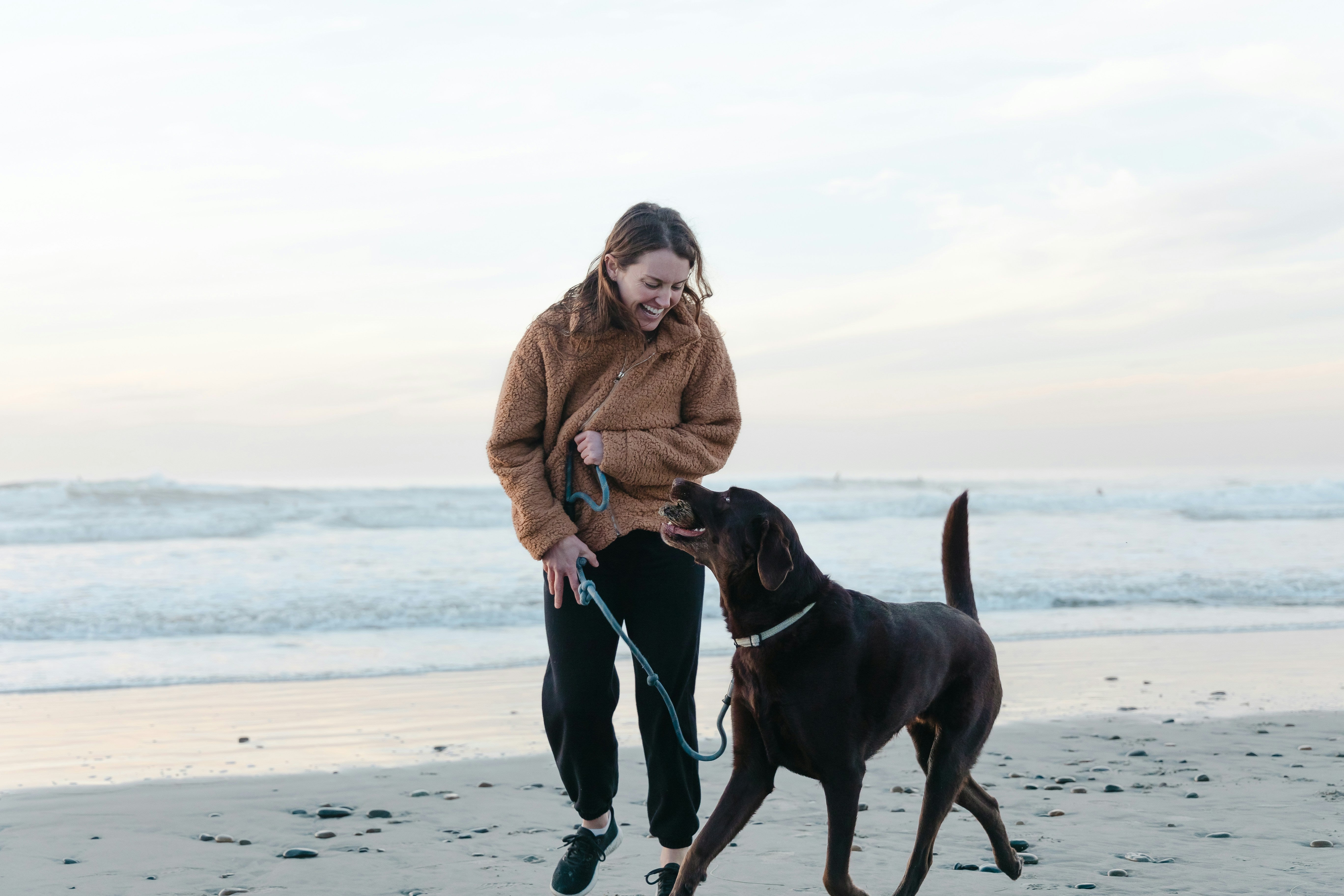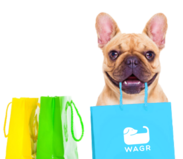Known for their intelligence, friendliness, and boundless energy, Labradors make excellent companions. Whether you're bringing home a puppy or working with an adult dog, understanding Labrador behaviour is the first step to successful training (along with a whole bunch of treats!)
Understanding Labrador Behaviour
Labrador Retrievers are known for their friendly and outgoing nature. They're generally good-natured, social, and eager to please, making them excellent family pets. They are known for their intelligence, but sometimes, their boundless energy can lead to some common behavioural challenges. They may be prone to enthusiastic jumping or pulling on the leash during walks. Understanding their friendly personality and energy levels is key to addressing and redirecting these behaviours through positive training techniques.
Basic Training Commands
1. Sit, Stay, and Lie Down
Mastering the basics is important for good manners. Use treats to lure the Lab into position, praising as they obey. For sit, hold the reward over their nose, drawing back towards ears until rear touches down, then reward. For stay, have them sit, say "stay", take a few steps away, then return to treat. Lie down follows the same lure method, moving treat downwards. Release with an "okay!" after a few seconds of obedience. Be patient and keep sessions brief for young Labs' short attention spans.
2. Come When Called
A reliable recall is needed for any off-leash activities with your Lab. Start indoors saying their name excitedly while stepping away to entice them towards you for a reward. Progress outside using longer distances and more distractions. Give hearty praise and treats upon returning while avoiding repetitive calling to not dull the ccommand's significance.
3. Leash Training
Teach loose leash walking by stopping or changing direction whenever they pull. Offer treats when the leash slackens as the reward. Pair verbal cues like "easy" or "let's go" to reinforce the behaviour. Be prepared to change pace and offer engaging distractions on walks to satisfy a Lab's insatiable curiosity while discouraging pulling towards every smell or sight.
Advanced Training
1. Fetching and Retrieving
Sharpen your Lab's innate talent for chasing, picking up, and returning objects by creating structured training sessions. Start with treats or a favourite toy, tossing a short distance and saying "fetch!". Praise upon fast retrieval, having them sit before you take the item to throw again. Increase distance and use basic obedience commands like sit and drop. Retrieving from water and directions like "left" or "right" can build on natural abilities.
2. Basic Tricks
Labradors thrive on mental stimulation. Teach fun tricks using shaping techniques and positive rewards. Shape a spin by rewarding turning their head, then body. For play dead, gently lure into position then pair with a hand signal. Seek behaviours they offer naturally like high-fives and build by marking and rewarding efforts. Keep sessions short but frequent for Lab pups.

Positive Reinforcement Techniques
Positive reinforcement should form the foundation of training. Rewarding desired behaviours motivates Labs to cooperate and builds trust. Proper use of treats means treating them immediately after they respond to a cue, using exciting treats, and pairing with a lot of praise. Slowly remove food rewards over time to shape behaviours motivated by your affection. Set Labs up for success by building skills gradually in distraction-free environments first. Keep sessions short and upbeat. Positive methods give much better results than punishment which can breed fear.
Socialisation Skills
Properly introducing Labs to various environments, people, and dogs will improve their temperament, and make them easier to train. Gradually expose puppies to everyday sights and sounds through walks introducing car rides, doorbells, crowds and more with lots of praise and treats to condition positive associations. Arrange controlled meetings with vaccinated gentle dogs to improve playing skills. Invite new guests over frequently, having them offer treats to get your Lab to be welcoming growing months will help them handle any situation or social setting with grace.
Dealing with Behavioural Issues
While eager to please, Lab puppies are still prone to problem behaviours like destructive chewing or excessive barking. Redirect chewing to appropriate toys and praise when they are calm. Digging stems from boredom or prey drive - provide an outlet that you can control like a sandbox. Calm their excessive energy with exercise. Prevent any rehearsal of unwanted habits and reward good ones. Remain patient, engaging in more training sessions. Consistency is key for long term improvement.
Training Tools and Equipment
Recommended tools include slip or martingale collars to avoid escape, sturdy leashes, clickers for precision marking, hollow chew toys like Kongs, rubber fetch balls, interactive food puzzles. Introduce handling, collars, and gear gradually in a positive light. Rotate their favourite toys to hold interest.
Fitness and Mental Stimulation
Labs thrive on vigorous activity. Provide at least 30-60 minutes daily of fetch, swimming, runs, or hiking. Off-leash and social play also satisfies needs. Schedule active training sessions. Prevent obesity and anxiety by meeting exercise requirements. Mentally engage their quick wit with trick routines, hide and seek games using toys or treats, food puzzles encouraging problem solving skills. Adequate physical and mental workout prevents destructive tendencies in energetic Labs.
Owning a Labrador is a happy adventure - a whole lot of joy, enthusiasm, and sometimes, chewed shoes (oops!). Their playful nature gives you endless entertainment, while their loyalty makes them absolutely loved companions. Understanding their energy needs, potential behavioural challenges, and providing consistent training are all you need to have a happy, well-trained little gentle doggo!












